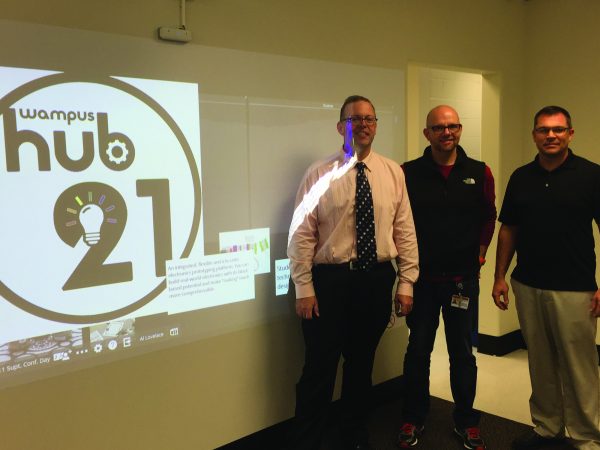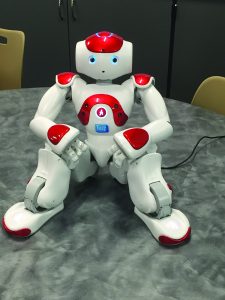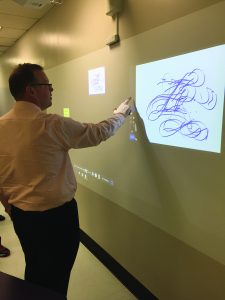On Climbing the COVID Mountain: A Heartfelt and Fact-Based Plea by an Emergency Room Doctor
By Dr. Evan Cohen
As an emergency physician, a husband and a father of two young children, I spend a lot of time thinking about Covid. Where we have been and where we are going. I find that despite all the destruction and pain that we have endured, the future is still ours to create.
Here, on the precipice of the Covid mountain I realize that I’ve gone through all of the stages of pandemic grief. In February and early March it was shock and disbelief. I did not think that Covid-19 would be so bad; it was being overblown by the media. Like Ebola, Bird Flu and SARS, it was happening far away and would not affect me. When it reached our shores and my community in New York, I felt certain that we could briefly quarantine our way out of the mess. As April rolled around, I was angry that so many people were dying. Selfishly, I was even more angry about the sacrifices that my family and I had to make. No more weekend date nights or get-togethers with friends, no vacations, no school or playdates for my children and there were no more escapes to the arcades and indoor playgrounds on those painful rainy days.
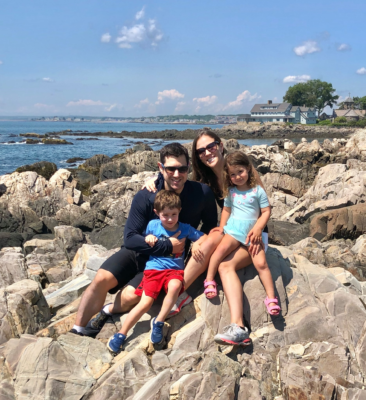
I stopped at the guilt stage during a frightening two weeks when my parents developed Covid. My father recovered very quickly, but as my mother’s illness lingered, I kept seeing her face superimposed onto my patients in the emergency department. I was constantly thinking about the possibility of someone so important to me lying in a hospital bed alone and with no effective treatments available. The worst part as a son and emergency doctor was that there was nothing that I could do other than call her every few hours to make sure her breathing wasn’t labored. After that experience, the Covid-related depression was almost a relief. It didn’t matter much that I am trained to recognize the risk factors for depression and get people help when they need it. I could only feel positive for so long while thinking about all that had been taken away from me, there was no end in sight. I remember leaving an interview I gave on Covid-related depression and feeling so hypocritical telling people how to try and battle the same gloom that I was feeling.
What kept me going during that time was the incredible support that I and my colleagues received from our community. As an ER doctor, I feel like I’ve been trained to deal with anything and anybody that comes through my doors. Having trained in Camden, New Jersey and worked all over the east coast of this country, nothing could shake or surprise me and I was proud of that. Many times, I was so good at separating emotion from reality that I forgot the value of my work. As a heartfelt reminder, our staff received countless letters of gratitude and witnessed several “drive-by” parades organized by the community. The hospital played “Fight Song” on the loudspeaker every time a Covid patient was discharged, a moment that always sent a shiver down my spine! I pray that every health care worker felt as appreciated as I did during those months.
The summer offered me a much needed respite and life almost felt normal. My mood was tied to the case count and as cases trended down in my community, I was able to spend time with my extended family, take my children to the playground and pool club. I would go days at a time without seeing a Covid patient at work. Now, with the summer in the rear view mirror and the weather getting too cold to play outside, I’ve reached the acceptance phase, although I’ve had to go through many of these painful phases again on my way here.
I accept that Covid is real and won’t disappear if we just wish hard enough. I accept that many more people will get sick and die and I accept that there will be sacrifices this winter. I also accept that myself contracting Covid is not inevitable and that I have some control over how things work out.
Nationwide, we are seeing the exponential spread of this illness come back with a vengeance. As case counts reach a critical level, the internal calculus we have been doing has changed. Chances are that any time there is any gathering of more than just a few people, there will be someone in the crowd with Covid. We are back to all Covid all the time. The biggest public health threat, hospital overcrowding, is happening again.
I appreciate that it seems like fewer people are dying and going on ventilators compared to last spring. The best explanation I can come up with for this is complex but I think is partially related to the amazing work of the scientific community in narrowing down and creating effective therapeutics. Dedicated scientists were able to figure out in short order that hydroxychloroquine, early ventilator use and azithromycin were out and remdesivir, steroids, and blood thinners were in. I feel optimistic about the new arrival of monoclonal antibodies. Despite all of these drugs, the most important factor that I see is the availability of nurses and other health care workers to be adequately staffed to care for the large numbers of Covid patients in the hospitals. This just cannot be overstated for any medical condition that requires a high intensity of care! For anyone that has recovered from surgery or serious illness, you know how important it is to take your medications on time, eat nutritious foods, be clean, communicate with loved ones and be able to walk. One of my health care heroes, a nurse colleague, donated countless hours last spring cleaning soiled patients and feeding them. those being the most essential tools in her toolkit. Those simple but crucial things just can’t happen without adequate staffing in hospitals.
Now, from standing on what I hope is the precipice, I see two futures. In one dark world, we have not learned from the mistakes of the past. Our Ids control our superego and we do what feels good. After all, it feels good to eat in a restaurant, to hang out with our friends, and to see our families. In this future, I see our schools closing down and my five-year-old son unable to sit still for Zoom kindergarten. I see my three-year-old daughter deprived of seeing her best friend and unable to get the amazing nurturing experience and growth she has been given this year at her nursery school. I see the death tolls rolling up. I see my colleagues in medicine going back into that dark place of last spring. In the other (brighter) future, I see us all banding back together the way we did in April. We can be supportive of each other during this time and simply do better at keeping the virus at bay. I do not accept that we have given our best effort at controlling this pandemic.
I believe that to act with conviction, you must first understand your WHY. My WHY with Covid is mainly driven by fear. I have a fear of my friends and family getting sick, of my children not being able to go to school, overcrowded hospitals and of coming down with a debilitating case of Covid just days before I was scheduled to receive the vaccine. I will never claim that my Covid behavior is perfect, but any sacrifices that I make are with those visions in mind. I know that everyone has different motivations in their lives; nevertheless I hope and believe that many of our WHYs are aligned.
Whatever your goals and motivations, we have a path forward in this together. And, thanks to the knowledge we have now in terms of mask wearing and physical distancing, we can do better. On the other side of this peak will be hundreds of millions of miraculous life-saving vaccines. Out of this tragedy, it’s possible that the Covid vaccines will offer the most impactful gift that the house of medicine has ever given to humanity.
As the winter rolls in and we get an influx of young adults home from college and a line-up of holidays that traditionally foster large gatherings, all that I ask is for all of us to realize what is at stake and how close we are to being on the other side of this mountain. I hope to see all of you when we get there.
Dr. Evan Cohen is originally from Rockland County, New York and obtained a B.S degree from Syracuse University. He obtained his medical degree from SUNY Upstate Medical University in Syracuse New York and completed an emergency medicine residency at Cooper University Hospital in Camden New Jersey. Currently, he is serving as a medical director and practicing emergency physician in Orange County New York. He lives with his wife and two children in Chappaqua, New York.
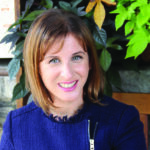 I’ve been thinking about Mrs. Dobrowski a lot as I work on this issue of the magazine. A widow, she lived across the street from us at my childhood home in Queens. On sunny days, she’d sit on the porch in her housedress reading the newspaper. On cloudy days, she watched TV. If I peered out through my window, I could make out the glare of the TV, bunny ear antennae perched on top. She would feed the neighborhood stray cats too and leave out a bowl of milk for them.
I’ve been thinking about Mrs. Dobrowski a lot as I work on this issue of the magazine. A widow, she lived across the street from us at my childhood home in Queens. On sunny days, she’d sit on the porch in her housedress reading the newspaper. On cloudy days, she watched TV. If I peered out through my window, I could make out the glare of the TV, bunny ear antennae perched on top. She would feed the neighborhood stray cats too and leave out a bowl of milk for them.
